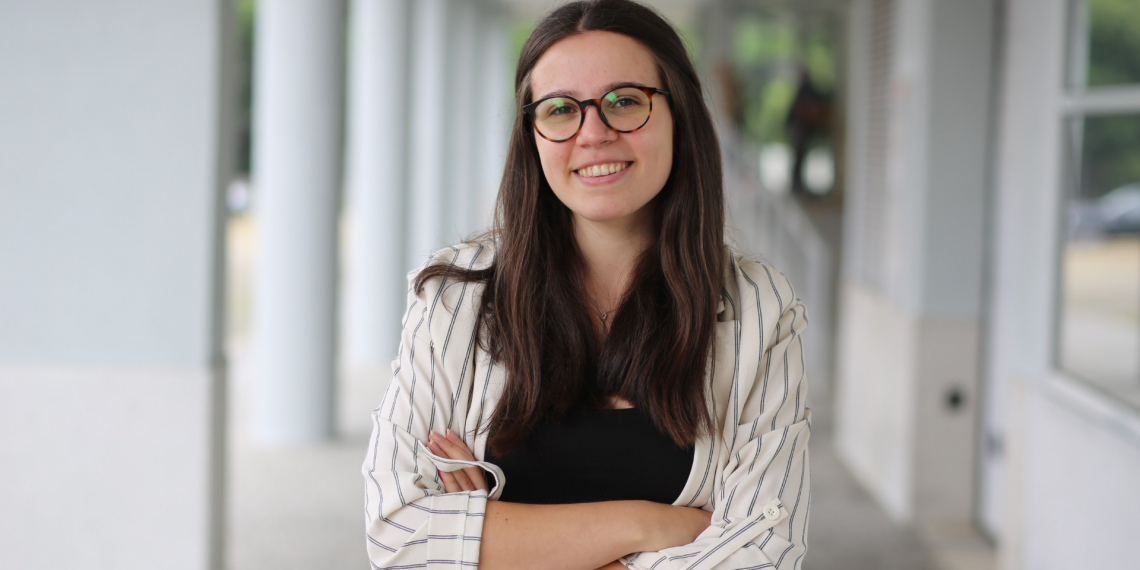By Bárbara Pinho, Technical Specialist at the Communication Service (SCOM) and Centre for Power and Energy Systems (CPES)
I started working at INESC TEC’s Communication Service three months ago; but I’d say that my arrival is quite fresh. This is because I know very few members of INESC TEC’s community in person, even though I am in a dynamic position, which involves contacting with many of them. Perhaps this is why it is risky to write about such a delicate theme. However, I’d say that’s quite important to focus on it anyway.
I have a degree in biomedical science and, although I have a significant interest in molecular biomedicine, I decided to stop doing science and start promoting it. This is where science communication comes in, the field in which I’m currently involved. When I was studying biomedical science, I was in an environment where science was perceived as something pure and untouchable: it’s objective, bringing us closer to the truth, and free from any bias. And when we are inside an academic bubble, surrounded by colleagues, professors and researchers who strongly believe in this “purity”, we end up rejecting all hypotheses stating the opposite.
Many still believe that science is on a pedestal, isolated from any political influence and bias. But a simple visit to the comments section on Scientific American’s social media profiles – namely when the editorial team decided, for the first time in the magazine’s history, to support Joe Biden’s candidacy – is enough to see that’s not true. Nature also includes editorial pieces that address politics in science, and there are those who strongly oppose it.
When I started studying science communication and diving into social sciences, I realised that nothing in society will ever be pure and free from bias, including science (even if we seek to perceive it objectively). Science is not untouchable. It never was, and never will be, because science is made of people and money. On the one hand, people are not untouchable: they have conflicts of interest, and internalised prejudice (the so-called “bias”). On the other hand, money definitely brings interests to the discussion. If science relies on money (one can’t make an omelette without breaking eggs), then politics and economics will always influence the scientific process.
But don’t take my word for it – after all, this is an opinion piece, and it is always better when we rely on facts, rather than opinions. I advise you to listen to three episodes of Nature’s podcast Stick to the science: when science gets political. Nature received so much criticism when it started publishing articles on politics, that it decided to launch these episodes to clarify, once and for all, whether science and politics are related or not.
When listening, it becomes clear that they actually are – and like any other intense relationship, it is complicated. But the difficulties can be beneficial. If scientists move from the academic bubble to the political bubble, then our leaders and politicians can make more balanced and fact-backed decisions.
While writing my master’s thesis, I worked with POST – Parliamentary Office of Science and Technology, a British parliamentary office that brings together science and politics. The POST team invites researchers and experts to write policy briefs on a given subject. More specifically, documents that include the best evidence on topics that are later discussed in parliament. This ensures that politicians have access to the best information possible. As a result, the parliament has already discussed topics like food security and artificial intelligence in health – all thanks to documents produced by academics, targeting politicians. A brilliant bridge to take society further.
I firmly believe in this connection, and I think it is time for our Portuguese politicians to accept recommendations from experts. It is important to keep implementing this practice, developed during the COVID-19 pandemic and the meetings with INFARMED. Moreover, it is also time to improve this complicated relationship, instead of trying to deny it, since even complicated relationships can be beautiful.




 News, current topics, curiosities and so much more about INESC TEC and its community!
News, current topics, curiosities and so much more about INESC TEC and its community!